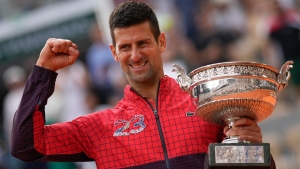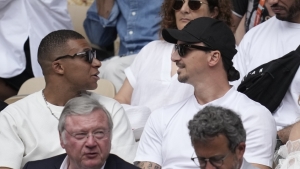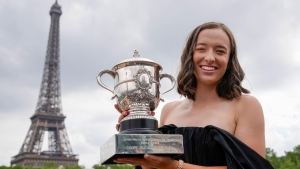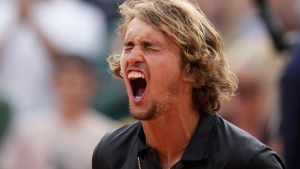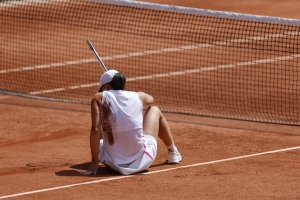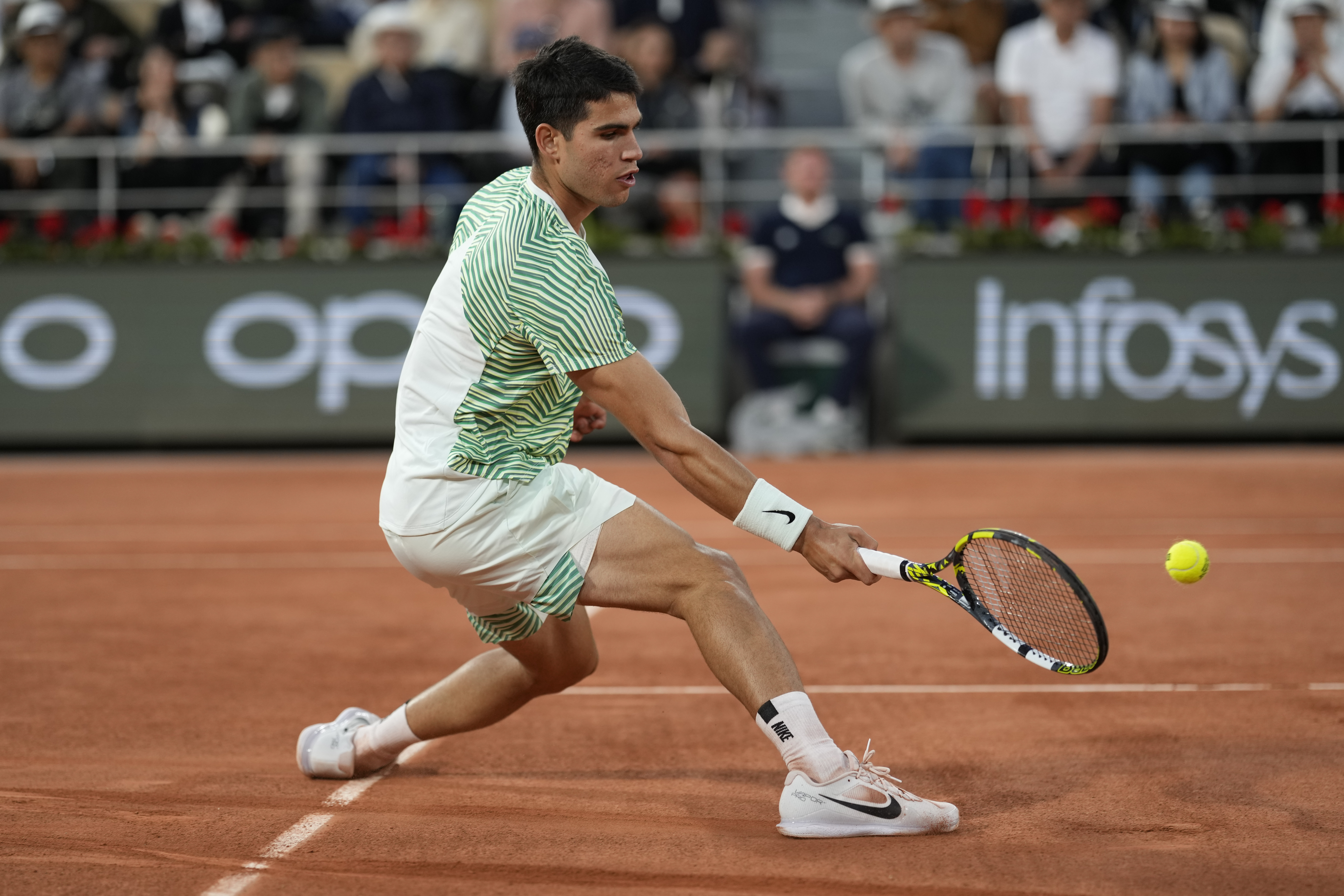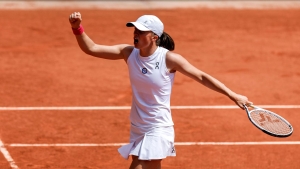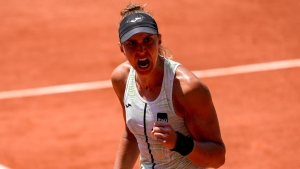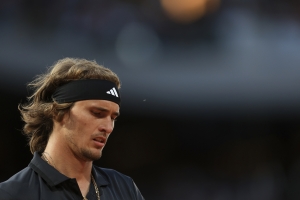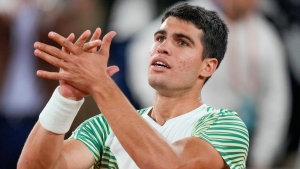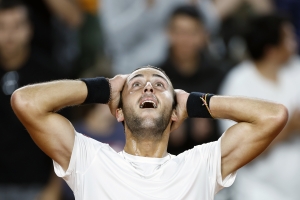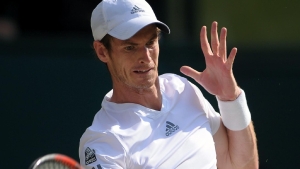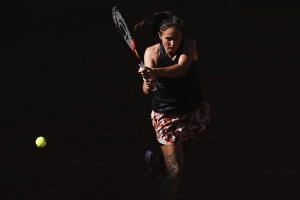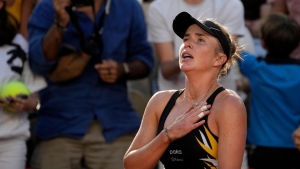A dispirited Coco Gauff was forced to digest a seventh straight loss to Iga Swiatek as the defending champion progressed to another French Open semi-final.
The pair had met in the final 12 months ago, with Gauff winning just four games, and the American had not won a set in their six previous clashes.
The statistic remains and, although Gauff had some success with a new game plan and pushed the world number one in a 6-4 6-2 defeat, that was of little consolation.
“Obviously you lose to someone seven times, you feel crappy,” said Gauff, who struggled to hold back tears.
“It’s not fun at all but also, every time I play her, I’m not thinking about the previous record. If I go in believing that I lost the match before it already happens then I’m never going to win.
“But obviously when it’s over, yeah, it does suck.”
Gauff came out with different tactics to last year’s final, testing Swiatek with high, slower balls to her backhand and trying not to allow the top seed to get into a rhythm.
Gauff’s big opportunity came in the third game of the second set when she created three break points – the third after drilling a point-blank backhand at Swiatek at the net, sending the Pole tumbling to the clay as she tried to avoid it.
Gauff swiftly apologised, but it was Swiatek who had the last laugh as the American fired shots long on each of her opportunities.
“I think a lot of the points I lost were off really small details,” said the teenager. “The game in the third set I had an opportunity to go up 40-0 and then also I was up 40-15 on her serve and missed two returns. That’s on my end.”
Gauff was unrepentant about hitting Swiatek, saying: “I didn’t try to hit her. I was just trying to hit the ball hard in the middle of the court, and it happened to hit her.
“I apologised after but I think she knows that’s part of the game. If you hit a bad ball and you decide to run to the net, there’s always a risk that you get hit.”
The Pole did not react at the time, and said later: “I don’t really know if that was her only option or not but I know Coco is a nice person and she wouldn’t mean it. Nothing personal. It happens.”
Swiatek extended her record at Roland Garros to 26-2 as she chases a third title in four years and she has only lost 15 games in five matches so far.
While she is a clear favourite to lift the Coupe Suzanne Lenglen again, Swiatek does not want to take an all-or-nothing approach.
“It’s never like that, honestly, especially at a grand slam,” she said. “I’m pretty happy to be in the semi-final again at Roland Garros. It’s a great achievement no matter how the tournament is going to finish.
“Especially coming into the tournament as a defending champion, it puts a lot of pressure on you. I’m really happy I can show consistency and just play good here every year.”
In the last four, Swiatek will face a player who has taken a much more scenic route in 14th seed Beatriz Haddad Maia, who defeated Ons Jabeur to become the first Brazilian woman to reach the French Open semi-finals in the open era.
After battling for nearly four hours to beat Sara Sorribes Tormo in the fourth round, she found herself with work to do after losing the opening set to seventh seed Jabeur but fought back impressively to win 3-6 7-6 (5) 6-1.
Haddad Maia has spent nearly 13 hours on court in reaching the last four, more than twice as long as Swiatek, who she beat in their only previous meeting in Toronto last summer.
The 27-year-old is a late bloomer having struggled with injuries and then served a 10-month doping ban – she successfully argued she had inadvertently taken a banned substance in a contaminated supplement – and this is her first time beyond the second round of a slam.
Haddad Maia said: “I think a tennis match is like a marathon. It’s not a 100 metres race. I think one of my qualities is that I wait and I’m very patient and I never give up.”
It was a disappointing loss for seventh seed Jabeur, who seemed in control of the match until the second-set tie-break.
The Tunisian managed to be happy for her opponent, though, saying: “She’s a beast and I wish her all the best. I feel like my story and her story are a little bit similar. I’m very happy for her and for Brazil, and hopefully she can do much more for her country.”
Jabeur is now targeting a first slam title at Wimbledon having lost in the final last summer.
“I’m hoping to go and get the title really in Wimbledon,” she said. “I’m dreaming about it. It’s something that I always wanted.”























